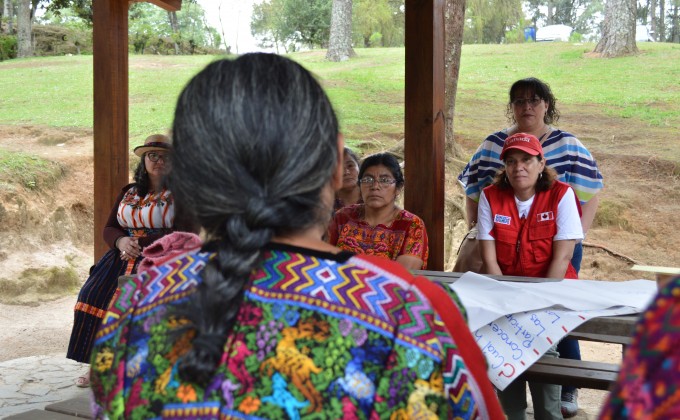
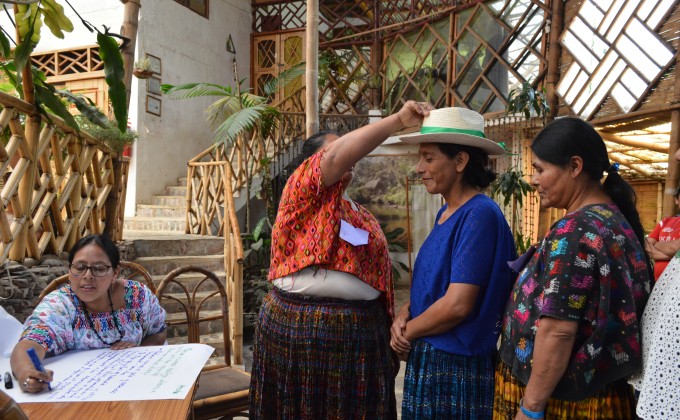
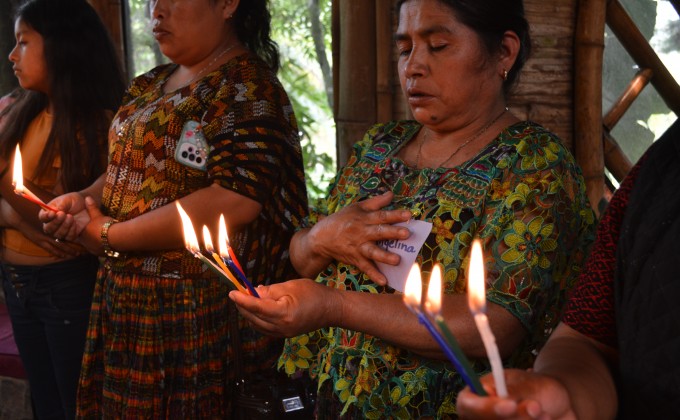
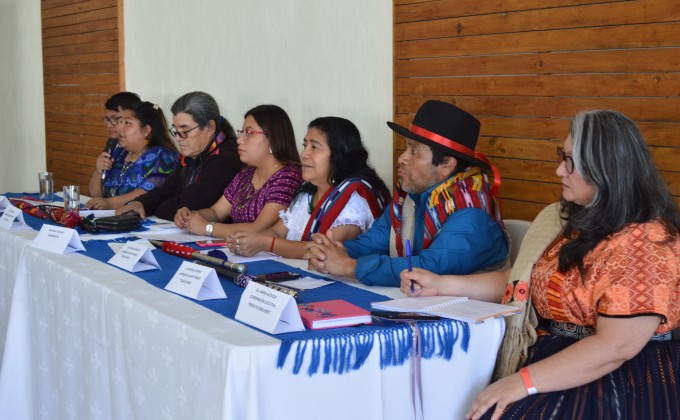
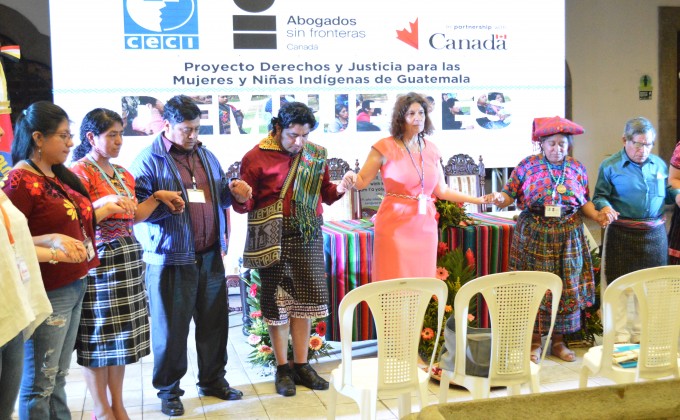

In this year 2023, the consortium formed by the Center for International Studies and Cooperation (CECI) and Lawyers Without Borders Canada (ASFC) successfully completed the implementation of the project Rights and Justice for Indigenous Women and Girls in Guatemala (DEMUJERES), initiated in 2018 in partnership with 11 social organizations in the departments of Alta Verapaz, Chimaltenango and Sololá.
The main purpose of the project was to promote greater access to justice and comprehensive care for indigenous women and girls who are survivors of multiple forms of gender-based violence, especially sexual violence, seeking to strengthen the capacities of local organizations that provide legal, psychosocial and economic empowerment support, as well as those of justice actors to provide care based on the individual and collective rights of indigenous women and girls.
In Guatemala, some fifteen years ago, the Law against Femicide and other Forms of Violence against Women (2008) and the Law against Sexual Violence, Exploitation and Trafficking in Persons (2009) were approved, as well as other laws aimed at eradicating discrimination and promoting the fulfillment of the rights of indigenous women and girls. Despite these legislative achievements, institutional efforts have not been sufficient to attend to the victims and reduce violence against women, which continues to be a latent problem.
One of the most relevant achievements of the DEMUJERES project was the creation and consolidation of a comprehensive model of accompaniment with a focus on cultural relevance for women survivors of violence, which seeks to strengthen the provision of existing services, incorporating the specific rights of indigenous women in three aspects of comprehensive care.
In the legal aid and judicial assistance services, while strengthening the knowledge and application of specific legislation on gender-based violence with judges, knowledge and methodologies were promoted to strengthen the role of justice operators and indigenous authorities in the eradication of racial and gender discrimination both in the state justice system and in the indigenous justice system. Psychosocial care services incorporated indigenous healing therapies, and economic empowerment services incorporated the recovery of traditional and ecological production techniques as well as the promotion of e-commerce.
The project partner organizations and their staff contributed their knowledge, experience and commitment to provide these services in a comprehensive manner, collaborating with each other in order to meet the different needs of women and girls who are survivors of violence. In addition to comprehensive services, the project promoted reflection among indigenous boys, youth and men on violence-free indigenous masculinities, both at the community level and at the Mesoamerican regional level. Transcendental processes for the promotion of indigenous women's rights around the world were supported, such as the recently approved Recommendation No. 39 of the CEDAW.
The DEMUJERES project supported the litigation of cases of indigenous women and girls survivors of sexual violence and gender-based violence that incorporated strategies for legal and psychosocial accompaniment with cultural relevance, security and advocacy and communication. This support resulted in three paradigmatic sentences in the department of Alta Verapaz, in three cases of sexual violence committed against three indigenous girls by teachers in the public school system. In these sentences, the judges in charge of the cases ordered the Ministry of Education to carry out a wide dissemination, training and implementation of the institutional protocol for the prevention of sexual violence in the educational space, as a measure of non-repetition. Likewise, these rulings set an important precedent by recognizing a pattern of sexual violence against students in the educational system, allowing survivors and their families to obtain justice and at the same time, targeted reparation measures, sending a strong message to the educational community that sexual violence against girls and adolescents should not be tolerated and will not go unpunished.
An external evaluation contracted by the Government of Canada, donor of the DEMUJERES project, highlights the incorporation of cultural relevance as a crucial factor for the project's achievements: "The project's work with the ancestral justice system was highlighted by several stakeholders as an aspect of particular importance, given that these authorities in many cases represent for indigenous women and girls the closest possibility of access to justice". This theme was also heard several times from women survivors of violence during the regional meetings held in the framework of the closing of this project.
The project's achievements were possible thanks to the joint work between CECI and ASFC teams and the 11 partner organizations that implemented the project, mostly indigenous organizations, indigenous women's organizations, indigenous authorities, artistic organizations, comprehensive care centers and shelters. They are: Majawil Q'ij, Consorcio de Asociaciones de Atitlán, Municipalidad Indígena de Sololá, Ajpop Tinamit, Asociación de Abogadas Indígenas Chomija', Sotzil Jay, ASOGEN, ASOJAV / Ak' Yuam, Colectiva Ixpop, MayaWorks, ADICI. These were joined by the efforts of justice operators: courts, feminicide judges, prosecutors from the Public Prosecutor's Office, and four referral networks for cases of violence against women: the networks of Cobán, Chimaltenango, Sololá and Santiago Atitlán.
Press release published in September 2023.
For more information, please contact Arnaud Deharte,
Telephone: 502 5808 7458, e-mail: ArnaudD@ceci.ca.